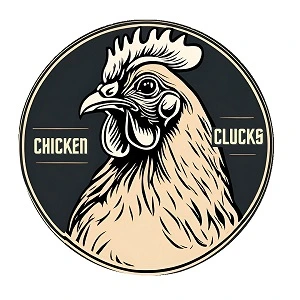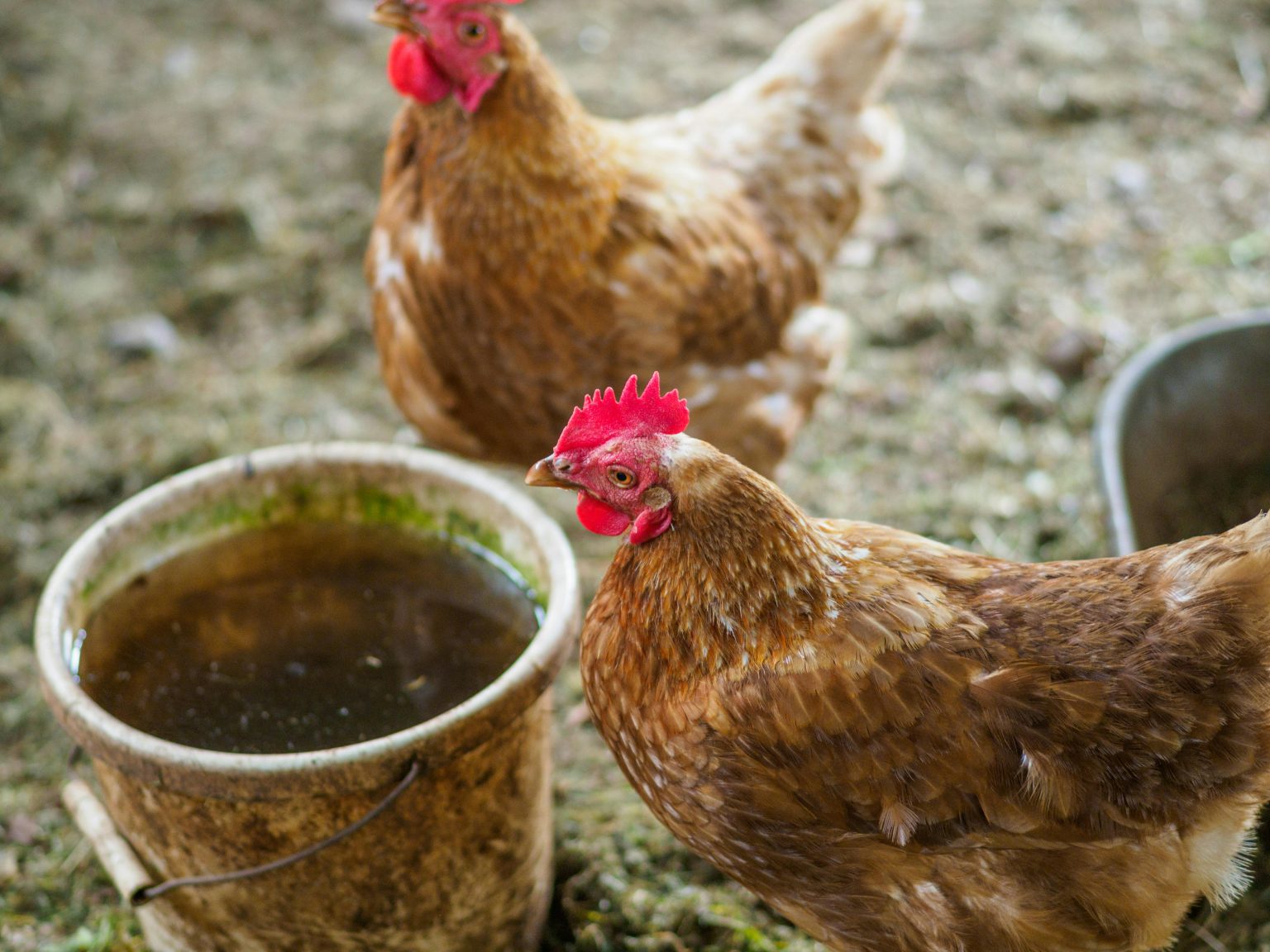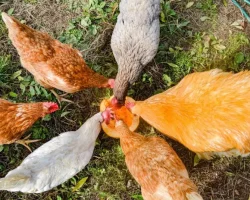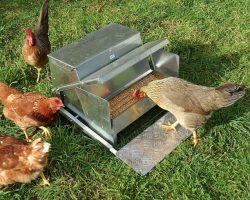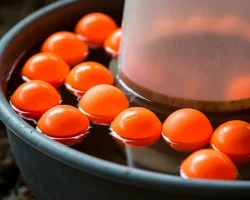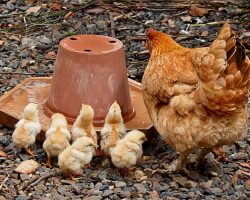Clean and safe chicken water is a critical yet often overlooked aspect of keeping your backyard flock healthy and happy. Do you know that chicken drinks about double what they eat? And that a chicken’s body consists of about 50% of water? Therefore, nutritionists often say water is the most important nutrient. Poor chicken water quality can lead to health issues, lower egg production, and a stressed flock. Discover the three steps to keep your chicken water clean and safe!
1. Clean Chicken Waterers regularly
Regular cleaning and disinfection of waterers and related equipment is important to keep the water clean and fresh. It includes:
- Daily maintenance: empty, rinse, and refill your chicken waterers every day to prevent bacteria and algae buildup. Monitor daily water consumption.
- Weekly deep clean: clean drinkers at least weekly, and more often in hot weather. Scrub them with hot water and soap to remove dirt and fatty, slimy residue. After cleaning, let them dry completely, and disinfect them with a poultry-safe disinfection agent.
Good water quality is key to a thriving flock. No more dirty chicken waterers!
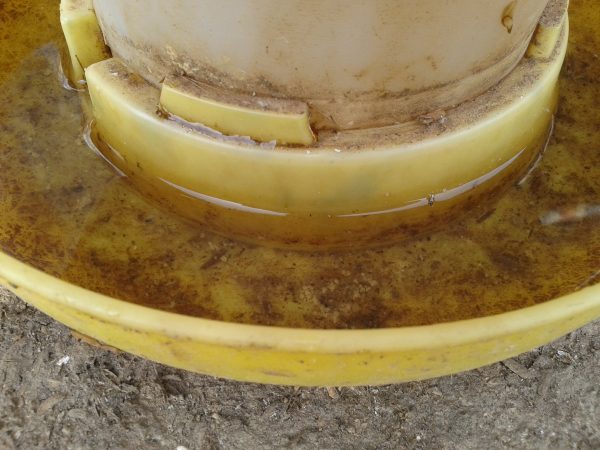
2. Filter chicken water
In some cases, you need to filter your chicken water. If you use clean tap water, there is no need to filter it. However, if you are using rain or well water, filtration is a necessity!
Filter rain and well water
Rain or well water may contain contaminants:
- Rain water straight from the cloud is 100% clean, but the roof you collected it from is not. Rainwater may contain dirt, sediment, and microorganisms.
- Well water might contain sediment, dirt, microorganisms, or high metals like iron or lead. Even pesticides from farm fields around your house can end up in your groundwater.
Therefore, always run rain and well water through a filter before giving it to your chickens.
Tip: Test well water before giving it to your chickens. Send a sample to the laboratory first.
Click here to find a table with laboratory analysis to request and norms.
What type of water filter should I use?
There are many types of water filters on the market. Which is most suitable depends on your water source, quality, installation, and equipment.
For most backyard flocks, a combination of mechanical and UV filters is very effective. Mechanical filters remove dirt and algae while UV filters disinfect the water. Adding an activated carbon filter can further improve water quality if needed. It removes chlorine, sediment, odors, tastes, and other residues. It improves the taste and smell of your water.
3. Disinfect chicken water
There are several ways to disinfect or sterilize your chicken water. Herewith my top four options:
- Use a UV (Ultraviolet) Sterilizer. This is an excellent, chemical-free option to disinfect water for your chickens. UV light kills harmful bacteria, viruses, and pathogens. However, you need to have automatic water lines supplying water to your drinkers. These systems are easy to install and sterilize the water as it passes through the line. If you don’t have automatic water lines, don’t worry. Choose one of the options below.
- Add Apple Cider Vinegar (ACV). This is a natural and simple way to disinfect water and support your chickens’ overall health. ACV lowers the pH of the water, and prevents the growth of harmful bacteria. Add 1-2 tablespoons of raw, unfiltered apple cider vinegar per gallon of water and mix it well. Use once a day. Don’t use apple cider vinegar if you have metal drinkers, since it will cause corrosion.
- Use Water Sanitizing Tablets designed for use in poultry systems. They contain chlorine dioxide or iodine, and disinfect the water without harming the chickens. Simply drop them in the water supply.
- Use Bleach since it contains Chlorine which kills bacteria and viruses. Bleach is the liquid alternative to water-sanitizing tablets, often used by professional poultry farms. Use a very diluted solution of 1 teaspoon of bleach per gallon of water. Dose very carefully. Let it sit for 30 minutes before letting your chickens drink from it.
Boiling water is also a very effective option to disinfect, but quite time-consuming.
Always select water disinfectants that are safe for use in poultry, follow the instructions on the label, and don’t use too much! This can harm your chickens.
Extra tips to keep your chicken water clean
In addition to cleaning chicken waterers, filtering, and disinfecting water, here are a few extra tips that help keep your chicken water clean:
- Choose the right chicken waterer
- Opt for drinking nipples if possible
- Hang or elevate your chicken waterers
- Put your waterers in the shade
Final Thoughts
There are three steps to keep your chicken water safe: First, clean drinkers and equipment regularly. Second, filter the water before giving it to your chickens. Third, disinfect the water. If you use good quality tap water, the first step is enough. If you use rain or well water, it is smart to apply all three steps.
Remember, 24/7 access to clean and fresh water is the key to healthy hens!
For more practical tips on chicken water, click here. Also, watch the video below.
